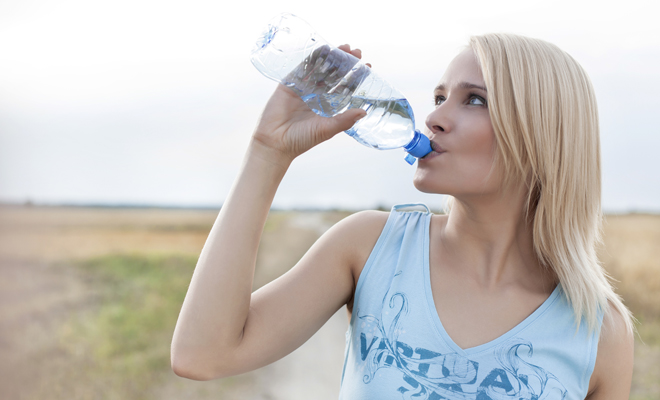How much water should you drink a day? You will have asked yourself this question many times and you will have heard a thousand and one different answers. The human body is made up of more than two thirds of water and needs it for most of its vital functions. Therefore, it is important to make sure that we drink the right amount of fluid on a daily basis.

How much water should you drink a day?
- Different organizations and experts have expressed different amounts in terms of water that should be drunk daily. The European Food Safety Authority explains in a report based on scientific research that it is advisable to consume 2 liters of water a day in the case of adult women and 2.5 liters in that of men.
- On the other hand, the ‘Eatwell Guide’ of the National Health Service (NHS) recommends drinking between 6 and 8 glasses of water a day. This guide details that you can also stay hydrated by combining this water with low-fat milk and non-sweetened beverages such as tea or coffee. The Australian Government’s Australian Dietary Guideline advises that adult men should drink an average of 2.6 liters of fluid per day and women 2.1 litres.
- As The dietitian of the Commonwealth Scientific and Industrial Research Organization, Pennie Taylor, ensures for ABC that there is no absolute and valid rule for everyone. She adds that the amount of water to drink a day depends on the sex, body weight and physical activity of each one. This expert explains that you should drink 35 milliliters of liquid for every kilo of weight. It also affects where you live: those who are in warmer and more humid places tend to sweat more and therefore need to drink more fluids.
- On the other hand, pregnant women and those who are breastfeeding their children need to drink more fluids, as well as all those who work in extreme situations or those who have a high-protein diet.
Am I drinking enough water?
- Your body will let you know if you’re not drinking enough water, so it’s important to be aware of the changes and symptoms you’re experiencing. For example, if you’re not getting enough fluids, you could feel a dry mouth, a headache, or feel dizzy. On the other hand, the color of your urine could change and be darker, as well as the number of times you go to the bathroom. Also, you could feel more tired, suffer from constipation or have muscle cramps.
- In all these cases, you should start drinking more fluids progressively. If these anomalies do not disappear, do not hesitate to ask a health professional for advice.
You can not only drink water
- Fruit juices and smoothies also count towards the measurement of your daily fluid intake and, in addition, they can provide you with many vitamins. However, the British health service recommends limiting your consumption to 150 milliliters a day since if they contain sugars they can be harmful to your health. On the other hand, sugary drinks tend to have a high calorie content and energy drinks also contain caffeine.
- Water is the healthiest way, since it does not contain calories or sugars, and the cheapest way to quench your thirst. If you don’t like or get bored with the taste of water, you can try sparkling water or add a little lemon or lime to it.
- Your body will thank you!
